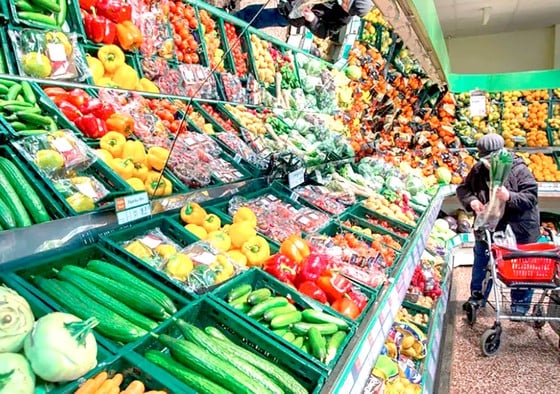SGGP
Germany's state aid to the economy and society is expected to rise to a record high this year, mainly due to the energy crisis, according to a study by the German Kiel Institute for the World Economy (IfW).
According to IfW, the subsidies could reach 208 billion euros ($219.3 billion), much higher than last year's figure of 98 billion euros ($103 billion). IfW expert Claus-Friedric Laaser said that, considering the scale and severity of the energy crisis for the German economy, increased financial support was understandable and predictable, but the huge amount of subsidies far exceeded the forecast.
The largest planned subsidies are for electricity and gas subsidies from the economic stabilization fund, amounting to 43 billion euros ($45 billion) and 40 billion euros ($42.1 billion), respectively, according to the researchers. Subsidies for the environment and energy also amount to nearly 35 billion euros ($36.9 billion), not including money from the economic stabilization fund. The transport sector is subsidized by 26 billion euros ($27.4 billion). There are also subsidies for energy-efficient building renovations worth nearly 17 billion euros and health insurance subsidies worth 14.5 billion euros, among others.
 |
Consumers choose to buy food at a supermarket in Germany. |
Subsidies are becoming the most important expenditure item in the entire state budget. According to calculations, more than 30 cents of every euro spent by the German federal government this year were spent on financial subsidies, while social spending was close to 30 cents, and spending on government activities or future-oriented activities such as infrastructure, research and education accounted for less than 20 cents.
IfW's study also found that if state subsidies and tax deductions are added together, Germany's total subsidies in 2023 could reach 362 billion euros ($381 billion), equivalent to 9.7 percent of GDP. The continued increase in subsidies is contrary to the wishes of the parties in the "Traffic Light" coalition (including the Social Democratic Party - SPD, the Green Party and the Free Democratic Party - FDP). Since the coalition was formed, the parties have agreed to reduce subsidies to help increase funding for climate protection and innovation programs. However, in reality, the successive crises of the past three years have forced the German government to provide more and more subsidies than before.
The latest forecast from the German Ministry of Economy shows that the country's economic output will shrink by 0.4%. This is a significant decrease compared to the 0.4% growth forecast in April 2023, when Berlin expected to overcome the energy crisis better than expected thanks to the recovery of the industrial sector. Current economic indicators such as industrial production, the number of orders, and the business climate index all show that GDP growth will continue to be weak in the third quarter of 2023.
For 2024, Germany forecasts the economy to recover with growth of 1.3% and reach 1.5% in 2025. The Ministry of Economy expects inflation to be 6.1% in 2023, before falling to 2.6% in 2024 and further to 2% in 2025.
Source



































































































Comment (0)